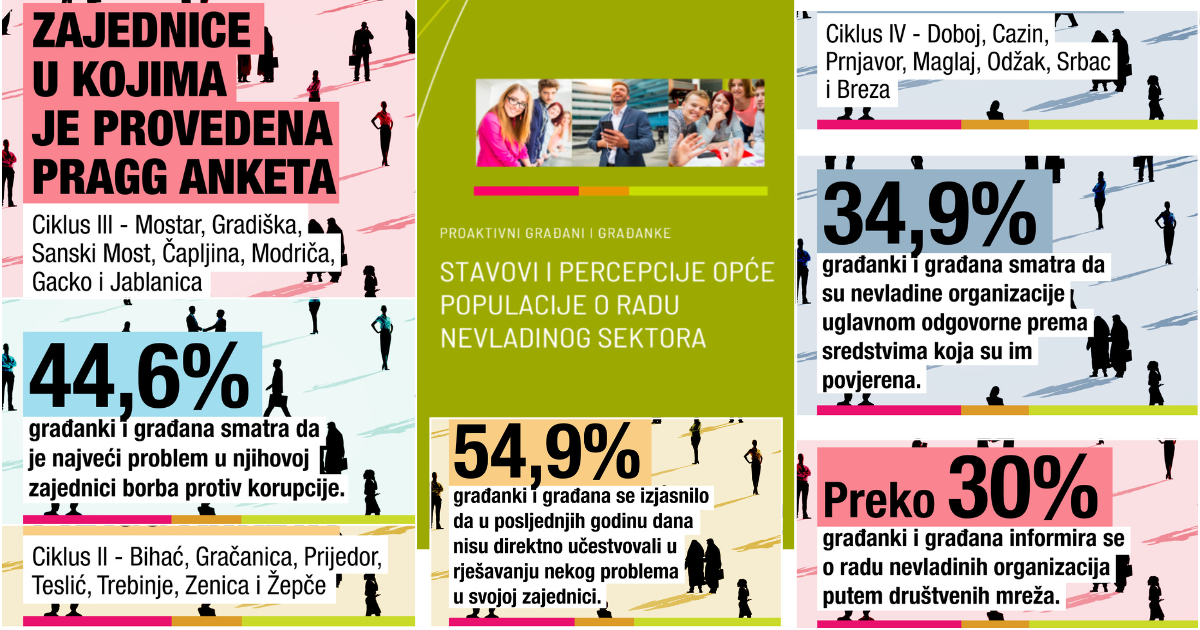
Research findings from the heart of local communities
Have you ever wondered how people in your community perceive non-governmental organizations? Do they trust them, follow their work, and believe NGOs can truly make a difference? These are exactly the questions addressed in the research “Attitudes and Perceptions of the General Population on the Work of the NGO Sector”, conducted within the PRAGG project.
Research that gives voice to the community
To better understand how citizens perceive the work of NGOs, a field survey was carried out in 36 municipalities and cities across Bosnia and Herzegovina. Enumerators, in cooperation with local NGOs, spoke directly with citizens using modern CAPI methods through digital questionnaires.
Five cycles, one goal: understanding the community
The research was conducted in five cycles, covering different local communities:
- Cycle I: Bijeljina, Tešanj, Gradačac, Laktaši, Ljubuški, Ilijaš, Nevesinje
- Cycle II: Bihać, Gračanica, Prijedor, Teslić, Trebinje, Zenica, Žepče
- Cycle III: Mostar, Gradiška, Sanski Most, Čapljina, Modriča, Gacko, Jablanica
- Cycle IV: Doboj, Cazin, Prnjavor, Maglaj, Odžak, Srbac, Breza
- Cycle V: Banja Luka, Bratunac, Konjic, Livno, Travnik, Tuzla, Vitez, Zavidovići
What did citizens say?
The results revealed a number of interesting insights that can serve as a foundation for strengthening dialogue between citizens and civil society organizations in the period ahead:
- 34.9% of citizens stated they have a mostly positive opinion of NGOs’ work;
- 43% of citizens believe they are generally informed about NGO activities in their community;
- However, 12.4% of citizens do not believe that NGOs can improve conditions in their local community.
These findings clearly point to the need for greater transparency, communication, and citizen involvement in the work of organizations operating in their environment.
More insights from the research are available HERE.
Why does this matter?
NGOs are often drivers of change in their communities – whether in areas such as environmental protection, human rights, education, health, and more. Yet, for their work to be effective, they must have the support of the very people they serve – the citizens.
That is why this research is so important: it provides valuable insight into people’s real needs, expectations, and attitudes, while also giving organizations a tool to adapt their work to the actual context.
Proactive Citizens is not only the name of the project – it is a vision of a society where every individual’s voice is respected, and where organizations exist to serve the communities to which they belong.




